Hey there, lovebirds! Many people have been asking for Korean love phrases that they can use when dating Koreans.
Below, we’ve listed Korean words and phrases you need to express your love, including phrases to flirt, give compliments, and romantic Korean phrases.
What better reason to learn Korean than to show your love to your significant other?
Here is the list of romantic Korean phrases you’ll need!
- I miss you – 보고 싶어 (bogo sipeo)
- I like you – 좋아해 (joahae)
- I like you a lot – 많이 좋아해 (mani joahae)
- I want to see you – 만나고 싶어 (mannago sipeo)
- I love you – 사랑해 (saranghae)
- I love you too – 나도 사랑해 (nado saranghae)
- I love you with all my heart – 진심으로 사랑해 (jinsimeuro saranghae)
- I’m crazy about you – 너에게 반했어 (neoege banhaesseo)
- I’d like you to be my girlfriend or boyfriend. – 나랑 사귈래 (narang sagwillae)
- I miss your smile – 미소가 정말 그리워 (misoga jeongmal geuriwo)
- I would like to spend more time with you – 너랑 더 오래 같이 있고 싶어 (neorang deo orae gachi itgo sipeo)
You’ll learn more about the romantic Korean phrases below.
Contents
- 1 Korean Love Phrases
- 1.1 Two Rules for Korean Love Phrases
- 1.2 Meeting & Dating Korean Phrases
- 1.3 Kind & Caring Korean Compliments
- 1.4 Affectionate Korean Love Phrases
- 1.5 Romantic Korean Phrases
- 1.6 Korean Love Words
- 1.7 Cute Korean Phrases
- 1.8 “Relationship” in Korean
- 1.9 “Romantic” in Korean
- 1.10 “Flirt” in Korean
- 1.11 “Flirting” in Korean
- 1.12 “Compliment” in Korean
- 1.13 “Crush” in Korean
- 1.14 “First love” in Korean
- 1.15 “Lovely” in Korean
- 1.16 Korean word for “love”
- 1.17 Korean Words to Avoid
- 1.18 Korean Fight & Breakup Phrases
- 2 Wrap Up
We’ve also got a PDF list of these phrases that you can take on the go or whenever you want to learn Korean love words.
Korean Love Phrases
Whether you’re dating a Korean or not, you’ll hear Korean love phrases when you consume much Korean content. It’ll be handy if you can understand them as you watch Korean dramas or movies and maybe use them if you’re dating a Korean. It’ll also be useful to know when and how to use them.
And if you’re unfamiliar with dating culture in Korea or the culture in general, it’s useful to get acquainted. This will be especially useful if you visit or move to Korea.
The love phrases in the Korean language below can be used for many romantic situations, such as:
- Blind dates
- First dates
- Couples
- Fiancees
- Spouses
In addition to Korean love phrases, we’ve also added plenty of romantic Korean words for you.
These love phrases are all up to date, so you can feel confident that you’re using the same words that couples in South Korea use these days to show and say their love and care for their boyfriend, girlfriend, or significant other.
All of these Korean love phrases are in standard form unless otherwise noted. You may use these romantic and cute Korean phrases for people who may be older or younger than you or who is the same age as you
If you can’t read Hangeul (Korean Alphabet) yet, you can get a free guide to learn in about 60 minutes here. It’ll be helpful for learning Korean and as you learn the Korean love words and phrases below.
Learning these love phrases is a great way to up your language skills when showing someone that you like or love that person. Using phrases will be a great way to improve your speaking skills, and you may also want to add these love words to your study plan. We’ve got some great resources to help you with that here. Let’s get to it!
Two Rules for Korean Love Phrases
There are 2 rules you need to keep in mind when you want to use love and cute phrases in the Korean language. We’ll discuss the rules for Korean phrases you need to know below.
Rule #1: Only “You”
You’ll notice that in many of the love phrases below, there is often no specific word for “you.” That’s because it’s not used often in the Korean language.
Koreans will use the other person’s name or omit the pronoun “you” altogether.
You may see some phrasebooks that use the Korean word “당신 (dangsin)” to explicitly say “you.” That’s ok. However, the problem is that Koreans don’t use this term very often, so it sounds a bit strange. This term is very formal to be used with love phrases.
Also, it’s a bit of an outdated term that means “honey,” so it can be confusing!
In the love expressions below, you usually don’t need the “you” if it’s clear who the recipient is. If it’s unclear, then you can add their name or title from part (ii) below.
Rule #2: The Korean Name Game
Koreans use a hierarchical system for referring to each other. Learning this system is important. It’s embedded in the language and in the Korean culture in a number of ways, and they consider it an important way of showing respect.
Simply put, Koreans will talk differently to one another depending on the age difference between them and the other people they speak with.
If you are in a relationship with someone older than you (older boyfriend or older girlfriend), learning to use the correct title (“오빠 | oppa” or “누나 | nuna”) is an important sign of respect.
You can use 오빠 (oppa) when you have an older boyfriend while 누나 (nuna) when you have an older girlfriend. If your significant other is the same age or younger, you may be able to use that person’s name. It depends on your level of closeness.
Here are the language rules for using names and titles when addressing your boyfriend or girlfriend:
| From | To | Use | Example | Romanization |
|---|---|---|---|---|
| female | younger male | (name) | (name) | saranghae |
| female | older male | oppa saranghaeyo | ||
| male | younger female | (name) | (name) | saranghae |
| male | older female | nuna saranghaeyo |
The language rules above will help you correctly use the phrases below. Get practicing so you can shower your significant other with kind words and affection!
Meeting & Dating Korean Phrases
Maybe you’ve got a first date planned. Going to a fancy restaurant or a day to stroll around Korea. Or perhaps you’ve been meeting this special someone for a few weeks?
Use these dating Korean phrases to get the ball rolling. They will help you from planning the date all the way up to becoming a couple!
| English | 한국어 (Korean) | Romanization |
|---|---|---|
| What is your phone number? | haendeupon beonhoga mwoyeyo? | |
| Let’s talk on KakaoTalk | uri kakaotok haeyo | |
| Do you have time this weekend? | jumare sigan isseoyo? | |
| Are you available break time? | swineun sigane sigan isseoyo? |
|
| I’m busy on Monday | woryoire bappayo | |
| Shall I set you up on a blind date? | sogaetinghae julkkayo? | |
| Shall we go on a date together? | uri deiteu halkkayo? | |
| Shall we get dinner together sometime? | eonje uri gachi jeonyeok meogeulkkayo? | |
| Shall we go for a short walk? | jamkkan sanchaekalkkayo? | |
| That was a great evening | jeulgeoun jeonyeogieosseoyo | |
| When shall we meet again? | eonje dasi bolkkayo? | |
| Will you be my boyfriend/girlfriend? | uri sagwillaeyo? |
You’ll notice a phrase about using KakaoTalk. KakaoTalk is a smartphone chat app that is the preferred app for residents of Korea. If you haven’t used it yet, get on it and learn the ins and outs! It could be just the boost your love life needs.
Kind & Caring Korean Compliments
These kind and caring Korean compliments will help you express your love or admiration and care for your date, Valentine, or significant other. He or she will appreciate your sincerity and kindness! If you’re close to that person, you can drop the 요 at the end of the compliments. Dropping the 요 is a more informal way of saying the phrase.
| English | 한국어 (Korean) | Romanization |
|---|---|---|
| You are handsome! | jal saenggyeosseoyo! | |
| You are charming! | maeryeokjeogineyo! | |
| You are pretty! | yeppeoyo! | |
| You are so cute! | neomu gwiyeowoyo! | |
| You are incredible | daedanhaeyo! | |
| You look great! | meotjineyo! | |
| You are so sweet! | jeongmal chinjeolhaneyo! | |
| You make a good first impression! | cheodinsangi jonneyo! | |
| You are the man of my dreams | naega kkumkkudeon namjayeyo | |
| You are the woman of my dreams | naega kkumkkudeon yeojayeyo |
Affectionate Korean Love Phrases
As you get further along with your relationship, you’ll want to explain what you like or love to your partner. You’d want to use affectionate Korean love phrases and express them to your partner.
Use the words and phrases below to show your affection. These phrases of love are in 반말 (banmal | informal language) since they’ll likely be used with a significant other or someone close to you.
| English | 한국어 (Korean) | Romanization |
|---|---|---|
| I miss you | bogo sipeo | |
| I like you | joahae | |
| I like you a lot | mani joahae | |
| I want to see you | mannago sipeo | |
| I love you | saranghae | |
| I love you a lot | mani saranghae | |
| I love you too | nado saranghae | |
| Give me a hug! | ana jwo! | |
| I want to hug you | anajugo sipeo | |
| I will give you a hug | anajulge | |
| I want to kiss you | ppoppohago sipeo | |
| Kiss me please | ppoppohae jwo | |
| I want to be with you | gachi itgo sipeo | |
| I miss your smile | misoga jeongmal geuriwo | |
| I would like to spend more time with you | neorang deo orae gachi itgo sipeo |
Romantic Korean Phrases
As your feelings of love become stronger, learning the proper words to communicate these emotions to your partner will be important. These romantic phrases should help you accomplish just that!
Since you’ll most likely be using these romantic Korean phrases with someone close to you, they are in 반말 (banmal | informal) form. This is a more informal way of speaking, such as using 안녕 (annyeong) instead of 안녕하세요 (annyeonghaseyo) for a greeting.
Below is a list of romantic Korean love phrases for you to express your emotions or affection to your partner.
| English | 한국어 (Korean) | Romanization |
|---|---|---|
| It was love at first sight | cheonnune banhaesseo | |
| I’m touched | gamdongbadasseo | |
| I love you with all my heart | jinsimeuro saranghae | |
| I love you more than you know | saenggakago inneun geot isangeuro saranghae | |
| I love you more than words can express | mallo pyohyeonhal su eopseul mankeum saranghae | |
| I love you more and more everyday | sigani jinalsurok deo saranghae | |
| You don’t know how much I love you | naega eolmana saranghaneunji moreul geoya | |
| I’m crazy about you | neoege banhaesseo | |
| I’m yours | naneun nikkeoya | |
| We’re a match made in heaven | urineun cheonsaengyeonbuniya | |
| Let’s get married | narang gyeolhonhae jwo |
Korean Love Words
Here’s a list of common Korean love words that you’ll hear in dating, from cute names to serious lifelong commitments. These are helpful love words you can use with your significant other while you’re learning Korean.
| English | 한국어 (Korean) | Romanization |
|---|---|---|
| baby | jagi | |
| honey | yeobo | |
| secret crush | jjaksarang | |
| couple | keopeul | |
| date | deiteu | |
| boyfriend | namchin | |
| girlfriend | yeochin | |
| kiss (quick peck) | ppoppo | |
| kiss | kiseu | |
| blind date | sogaeting | |
| blind date for marriage | matseon | |
| group date | miting | |
| lover | yeonin | |
| love | sarang | |
| boyfriend or girlfriend | aein | |
| engagement | yakon | |
| remarriage | jaehon |
Cute Korean Phrases
Koreans love to express their feelings and affection by acting cute. You may have seen instances where a Korean says words and phrases in a cute way in a Korean drama you’ve watched. Below are Korean words and phrases that are considered to be cute phrases when expressed in a playful and childish way.
| English | 한국어 (Korean) | Romanization |
|---|---|---|
| Stay with me | nae gyeote isseojwo | |
| Come closer to me | deo gakkai wayo | |
| Stay still, don’t move | gamanhi isseo | |
| Can I hug you? | anado dwae? | |
| Hold me tight | kkok ana juseyo | |
| I can’t give you up | dangsineul pogihal su eopseoyo | |
| I can’t live without you | neon eopsineun mot sara | |
| I love you with all my heart | jinsimeuro saranghaeyo |
“Relationship” in Korean
The word “relationship” in Korean language is 관계 (gwangye). However, “romantic relationship” in Korean is 낭만적 사랑 관계 (nangmanjeok sarang gwanggye).
“Romantic” in Korean
The word “romantic” in Korean is 로맨틱한 (romantikhan) and 낭만적인 (nangmanjeokin). If you are a fan of Korean dramas, you can say 로맨틱한 한국 드라마 (romantikhan hanguk deurama) and 낭만적인 한국 드라마 (nangmanjeokin hanguk deurama) for romantic Korean drama.
“Flirt” in Korean
The word “flirt” in Korean is expressed as 바람둥이 (baramdungi). This is used when you’re using the word “flirt” as a noun.
For example:
그 사람은 정말 바람둥이 같아요. (geu sarameun jeongmal baramdungi gatayo)
He’s like a real flirt.
그는 타고난 바람둥이에요 (geuneun tagonan baramdungieyo)
He’s born a flirt.
“Flirting” in Korean
Flirting in Korean is 추파를 던지다 (chupareul deonjida). This is the word you’ll use if you’re using “flirting” as a verb.
For example:
그는 계속 나한테 추파를 던졌어요. (geuneun gyesok nahante chupareul deonjyeosseoyo.)
He kept flirting with me.
“Compliment” in Korean
“Compliment” in Korean can be expressed as 칭찬 (chingchan) and 칭찬하다 (chingchanhada). 칭찬 (chingchan) is the noun form while 칭찬하다 (chingchanhada) is the verb form.
For example:
유정 씨는 학교에서 칭찬을 받았어요. (yujeong ssineun hakkkyoeseo chingchaneul badasseoyo)
Yujeong was praised by her school.
많은 사람들이 송혜교의 미모를 칭찬해요. (maneun saramdeuri songhyegyoeui mimoreul chingchanhaeyo.)
Many people praise Song Hye-kyo’s beauty.
“Crush” in Korean
The word “crush” in Korean is expressed as 짝사랑 (jjaksarang). This word is usually used for unrequited love or one-sided love.
If you like someone but that person may not know or may not like you in return, then you’d use 짝사랑 (jjaksarang). For example, 그녀를 짝사랑하고 있어요 (geunyeoreul jjaksaranghago isseoyo). This means, “I have a crush on her.”
“First love” in Korean
The phrase “first love” in Korean is 첫사랑 (cheotsarang). For example, 엄마는 아빠의 첫사랑이에요 (eommaneun appaui cheotsarangieyo). This means “Mom is Dad’s first love.”
“Lovely” in Korean
The word “lovely” in Korean is 사랑스러운 ( sarangseureoun). For example, 그들은 정말 사랑스러운 학생였어요 (geudeureun jeongmal sarangseureoun haksaengyeosseoyo). This means, “They were really lovely students.”
Korean word for “love”
The Korean word for love is 사랑 (sarang). This is why when you say “I love you” to someone, you’ll say 사랑해요 (saranghaeyo) or 나는 너를 사랑해 (naneun neoreul saranghae).
Korean Words to Avoid
Some words will brighten your day, and some are bad news. These are the words that you probably don’t want to hear or use, but they’re good to know in order to recognize them.
You may hear them in K-Pop songs or K-Dramas, so now you can listen to them and know what they mean.
Below is a list of Korean words to avoid with their English meanings:
| English | 한국어 (Korean) | Romanization |
|---|---|---|
| player | baramdungi | |
| cheat on | barampiuda | |
| flirt | jageop | |
| hit on | heonting | |
| divorce | ihon | |
| broken heart | siryeon |
Korean Fight & Breakup Phrases
In relationships, you have to take the good with the bad. If the love wasn’t meant to be, then these breakup phrases will help you make a clean break and move on.
These phrases are mixed between the standard form and the informal form. If it’s a phrase you’d likely use with someone close to you, then it’s listed in informal form (반말 | banmal).
| English | 한국어 (Korean) | Romanization |
|---|---|---|
| I’m not interested | gwansim eopseoyo | |
| Leave me alone | nareul honja itge haejuseyo | |
| You are not my type | nae seutairi anieyo | |
| Go away! | geunyang ga juseyo! | |
| Please stop nagging me! | bagaji jom geukji ma! | |
| Our relationship was doomed from the start | uri gwangyeneun cheoeumbuteo munjega isseosseo | |
| Let’s break up | ije heeojyeo |
These are just some of the more specific phrases of love you could learn. We have a lot more phrases to help you study in other categories as well. Start learning them now so you can begin to tell your special someone how much you care. You might want to include these phrases in sentences to express your love even more. You can start by learning the basics of the Korean sentence structure.
Wrap Up
If you want to learn Korean, we have a structured online Korean course that will teach you how to have a 3-minute conversation with your Korean loved ones in the first 90 days.
Are there any love phrases you would like to know how to say in Korean? If so, leave a comment below, and we’ll do our best to add it to the list!


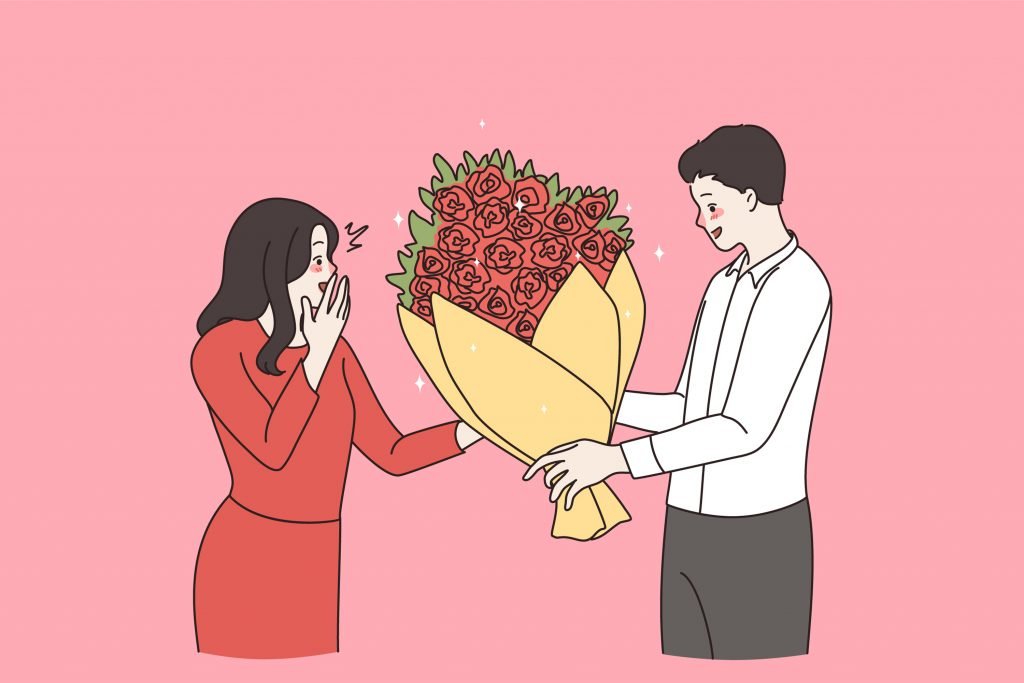
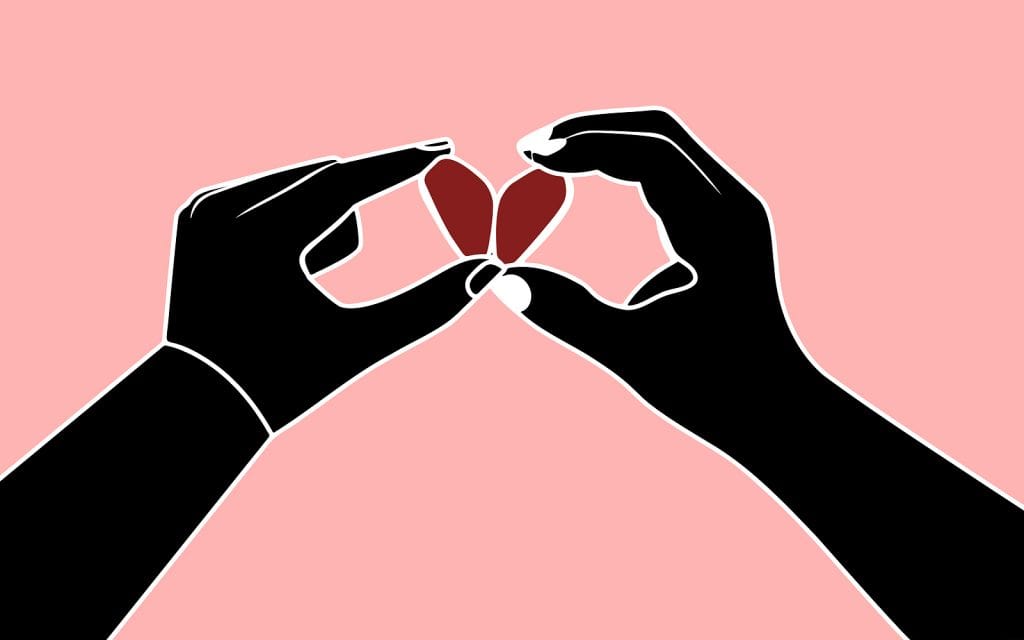
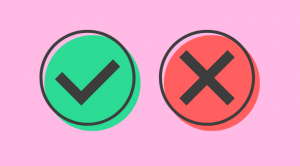
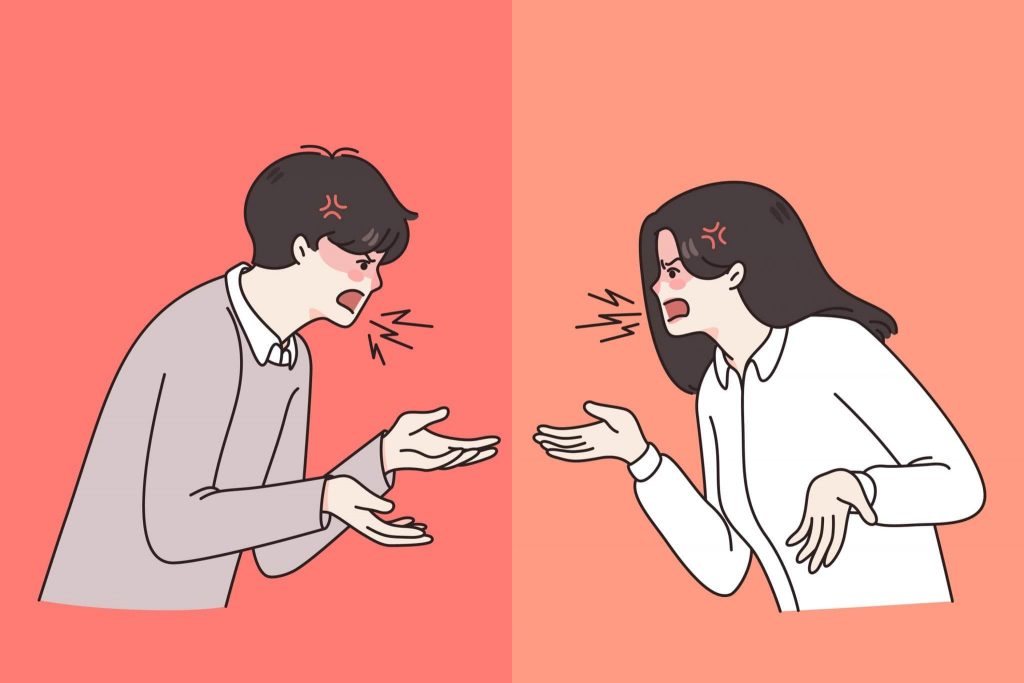

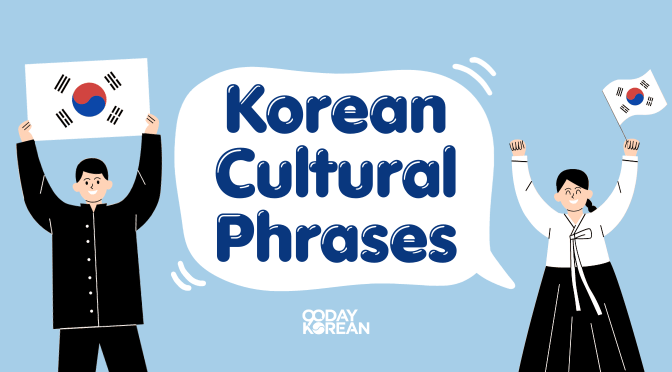
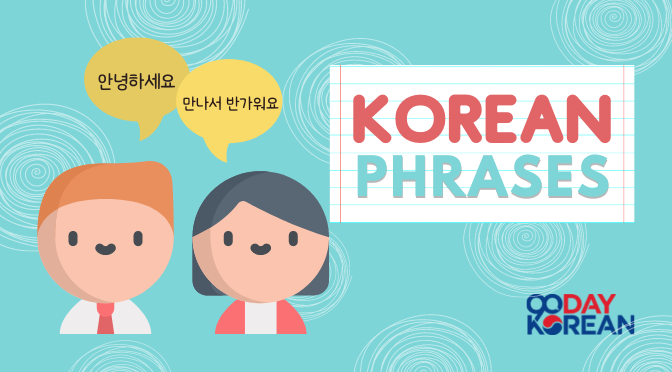
Hi! Thank you for the thorough article! My (half, not fluent) Korean boyfriend told me today something that sounded like “ee mankeum” (“I mancum” in English), and told me that I might understand it when I get there in my Korean studies. What could he have meant? I couldn’t find any plausible translation on the whole internet. Can you please help to shed some light on This?
Sorry, rather “ee mancum” in English. I was struggling with autocorrect 🙂
Hi, Nora! I think he meant “이만큼” (this much). In Korea, it’s commonly used when a person (let’s suppose it’s you) asks his/her partner (your boyfriend) how much he loves you, he will say 이만큼 (this much) as he makes a certain motion with his arms. ^^
Thank you for the help! Makes sense, and i think he himself needs some more Korean lessons 😀
Hi ! Koreans don’t say the word “너” or “넌” as meaning of “you” in english ?
We do, Iris! You can say “너” or “넌” to someone you’re really close to! For example, friends and younger siblings. ^^
How can I say “do you think we have a future?”
Thank you!
Hi, Mimi! You can say “우리한테 미래가 있다고 생각해?” ^^
In many dramas they use the word “some” (썸 maybe?) to explain a flirting relationship or a possible future one, how is the word supposed to be spelled and how is it translated?
Hi, Ellen! 썸 is correct! The word is from 썸씽 (something), meaning “there’s “something” between the two people”. ^^
Hi! How do you say, “You are worth the wait” in Korean! Thanks in advance for answering! ^^
Hi Eri! You can say 당신은 기다릴 가치가 있어요. ^^